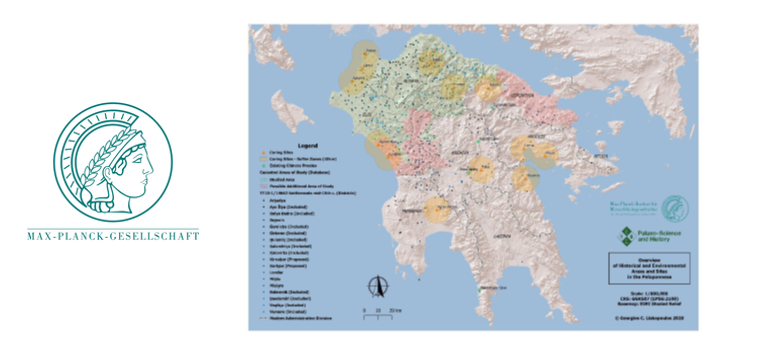GET has a long-standing partnership with Max Planck’s Palaeo-Science and History team for the Advancement of Science (Max-Planck-Gesellschaft zur Förderung der Wissenschaften). Results of the above collaboration were presented in the context of the lecture series organized by the new Board of HellasGIs.
The presentation was entitled “Environmental History of Byzantium and the Ottoman Empire. Databases and cartographic products as scientific tools of interdisciplinary research”, which was presented by Dr. George Liakopoulos.
The independent research team Palaeo-Science and History was founded in 2018 and is based at the Max Planck Institute for the History of Humanity in Jena (Max-Planck-Institut für Menschheitsgeschichte, Jena) under the direction of Professor Adam Izdebski.
The Environmental History of Byzantium and the Ottoman Empire is its research object and the methodology followed focuses on the study of a dichotomy of natural and historical evidence. The former include pollen concentrations in aquatic sediments, while historical primary sources include Ottoman tax settlements and Venetian land registers and inventories (15th – 18th centuries). The quantitative and quantifiable data derived from these items are recorded in databases by specialist scientists (paleo-environmentalists, geologists, historical ottomanologists and venetologists), in order to be analyzed and evaluated in a second stage. As these data are intertwined with geographical information, the cartographic products produced contribute to their interdisciplinary study.
After being subjected to the torment of statistical models, it is examined whether the archives created by nature and man converse with each other and to what extent, in order to reconstruct, as far as possible, past natural ecosystems and to understand the grid of anthropogenic factors that interacted with them. .
The geographical areas that have been selected for the application of this methodology, due to the adequacy of historical documentation and the capable concentration of pollen in the undisturbed stratigraphy of their sediments, are the Peloponnese and Halkidiki.
The Palaeo-Science and History team collaborates with the GET Company, which designed, created and hosted a database of geospatial, fiscal, demographic and nomenclature data that had been indexed from the historical sources of the above areas.

